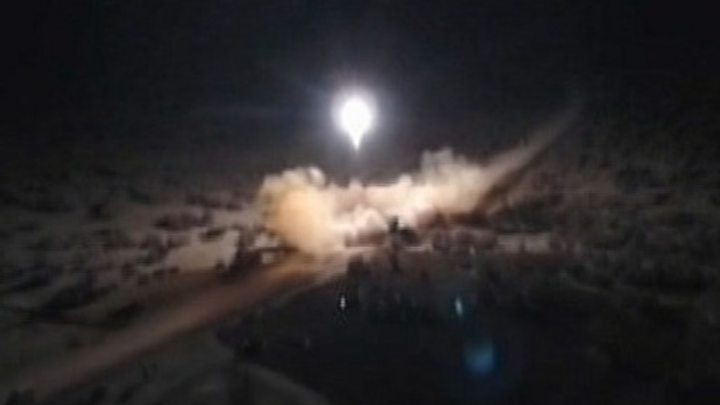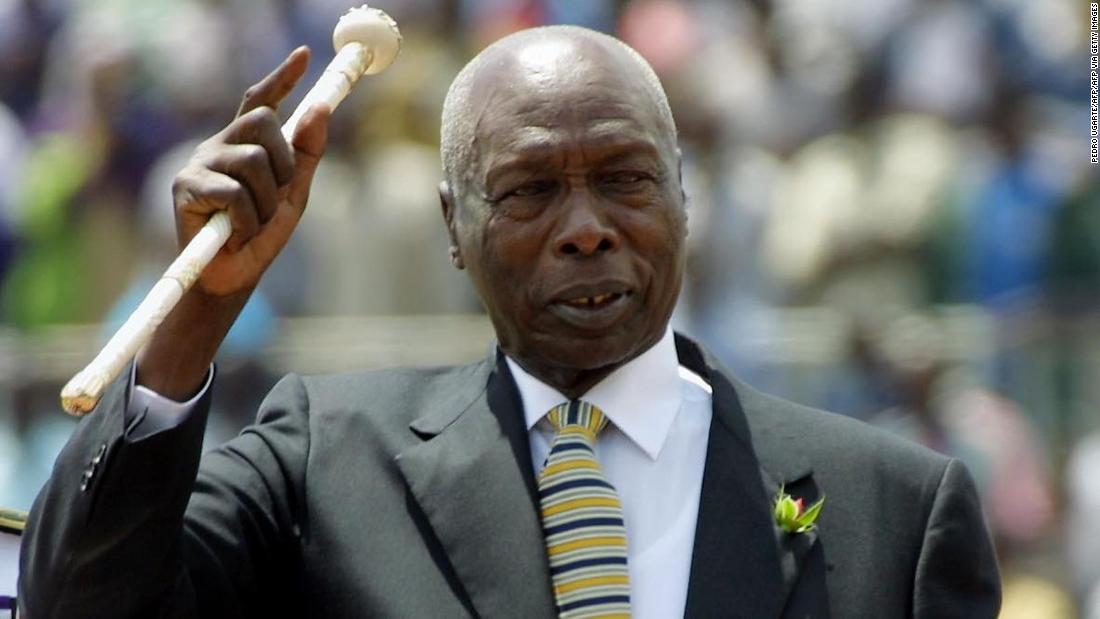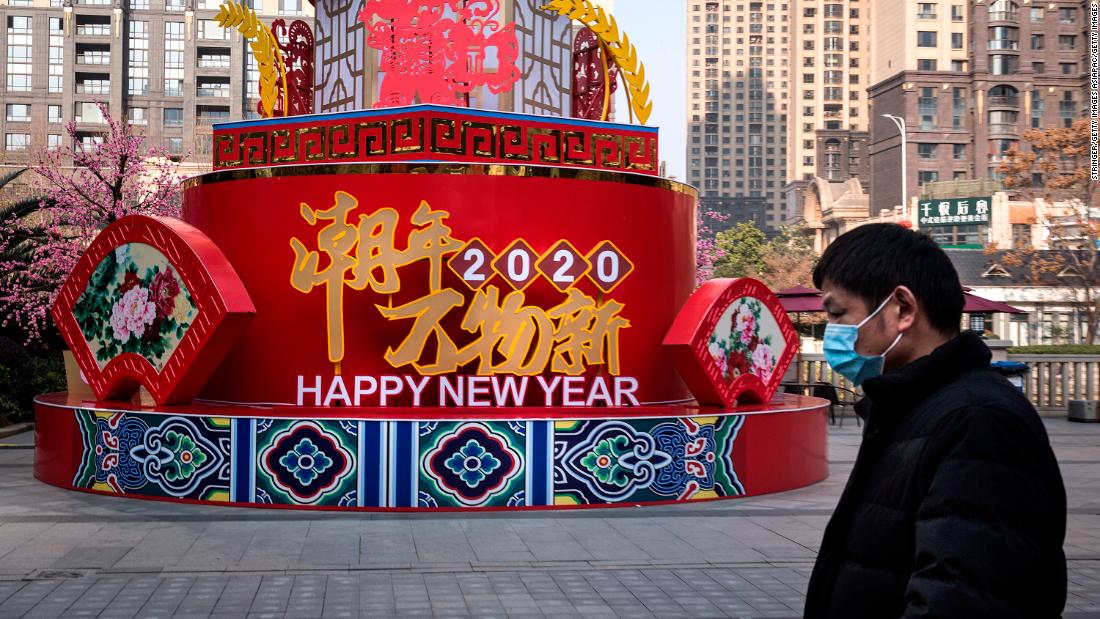The total number of confirmed cases in China stands at 20,438 as of Tuesday morning, an increase of 3,235 on the previous day -- an over 18% jump. The death toll is now at 425 in China, an increase of around 65 from Sunday.
Outside of China, the prevalence of the virus remains far lower, but more than 185 cases have been reported in over two dozen countries and territories. Two people have died outside mainland China since the outbreak began. One in the Philippines, and another in the semi-autonomous Chinese city of Hong Kong, which reported on Tuesday that a 39-year-old man who had traveled to Wuhan last month had died.
In a meeting with top officials Monday, Chinese President Xi Jinping called the virus outbreak a "major test of China's system and capacity for governance," as the extended Lunar New Year holiday and growing concerns began to take a toll on the country's economy.
According to state media, Xi demanded "resolute opposition against bureaucratism and the practice of formalities for formalities' sake in the prevention work," adding that those who disobeyed would be punished. His comments could be an indication that frustration is growing over the failure to rein in the virus, and the slow initial response by Wuhan officials, some of whom have already offered to resign over their handling of the crisis.
Xi also called for an improvement in the country's emergency management system, an "overhaul of environmental sanitation," improvements to public health, and a "crackdown on illegal wildlife markets and trade."
Worldwide crisis
Even as cases of the virus are reported worldwide, the majority of patients have a link to China, either tourists or people returning home from a visit to the country. Person-to-person transmission of the virus has been confirmed, however, including among some patients overseas, and countries are scrambling to ensure it does not spread further afield.
On Monday, authorities in
Japan quarantined a cruise ship at a port in Yokohama, south of Tokyo, after an elderly male passenger on the vessel was found to be infected with the virus when he disembarked in Hong Kong in late January.
Japanese health authorities said around 2,500 passengers and some 1,000 crew members are on board the Diamond Princess, which returned to Yokohama after stops in Hong Kong, Vietnam, Taiwan, and the Japanese prefectures of Okinawa and Kagoshima. At least seven people on board said they feel ill, though none have been confirmed to have the virus.
All passengers will be checked, authorities said, with the results expected Tuesday evening.
Japan is one of around a dozen countries which have evacuated citizens from Wuhan, which remains on tight lockdown along with much of surrounding Hubei province. Italy repatriated 56 nationals on Monday, as the US said it would send additional flights to evacuate hundreds of Americans who remain in Hubei.
Closer to China, the semi-autonomous city of Macao announced on Tuesday that it will suspend operations of gambling and related industries for half a month in an effort to contain the virus.
The outbreak has had a devastating impact on tourism in the gambling enclave, which relies heavily on mainland Chinese visitors. Gambling is illegal on the mainland and Lunar New Year is usually a particularly busy time for Macao's casinos. But not this year -- tourism to the city has dropped 73.6% year-on-year, the Macao government announced on January 29.
The self-governing island of Taiwan said on Tuesday that it will implement entry restrictions for foreign nationals who have been to China starting on Friday.
The restrictions mean that any foreign national who has visited or lived in mainland China in the past 14 days will be denied entry to Taiwan, barring exceptions for those needing to enter for "special reasons," according to the island's Ministry of Foreign Affairs.
Hong Kong on Monday announced further closures to its borders with the mainland. All but three crossings, including the two busiest land borders, are now closed.
The announcement by the semiautonomous city's leader Carrie Lam came after health care workers began strike action Monday to demand the city be fully sealed off from the mainland. Memories of the deadly 2003 SARS outbreak run deep in Hong Kong, where many businesses have sent workers home to avoid spread of the virus. Unions said strike action will continue Tuesday unless further action is taken by Lam.
Economic pain
With the virus outbreak in its third month with no signs of slowing, cities across China have announced further efforts to try and stop it.
Hangzhou, the capital of eastern Zhejiang province, on Monday
reportedly announced some of the tightest quarantine measures outside Hubei. People returning to the city from outside Hangzhou could face up to two weeks in quarantine, while all public places will be closed for the foreseeable future, according to local media.
The stringent restrictions and extended holidays across much of China are beginning to impact the country's economy, however. China's stock markets
posted major losses on Monday, their first day open following the Lunar New Year break.
The losses on the Shanghai and Shenzhen markets wiped out a combined $445 billion in value. Monday was Shanghai's worst day since 2015, and Shenzhen's worst since 2007.
The value of the Chinese yuan also fell, while
global oil prices have suffered amid fears that the virus outbreak will destroy demand in China, the world's largest crude importer.
Authorities in China have already announced a 1.2 trillion yuan ($173 billion) injection into Chinese markets to help maintain "reasonably ample liquidity" in the banking system and keep currency markets stable. The net amount of cash flooding into the market will be closer to 150 billion yuan ($22 billion), according to Reuters, as more than 1 trillion yuan worth of other short-term bond agreements matured Monday.
Hong Kong is also bracing for further difficulties. The city was already in a technical recession after more than six months of anti-government protests and the US-China trade war, and many
analysts fear the effects of the virus could wipe out many businesses.
While the national economy is already suffering, it's unclear how long Chinese workers can remain at home, with many facing several weeks out of work since the beginning of the Lunar New Year holiday. Many migrant workers will have traveled home for the festival, potentially leaving them trapped in their provinces and unable to return to the east coast, where most major manufacturing areas are.
Treating the virus
Amid all the misery, there are some small signs of hope.
Officials in Thailand said Monday that a second patient has been treated with a new combination of HIV and flu drugs, after doctors said the cocktail had been successful in treating a 71-year-old woman from China with the virus. Officials have yet to provide an update on the success of the treatment for the second patient.
Thailand's Health Minister Anutin Charnvirakul told reporters that the 71-year-old had the most severe symptoms of all those in care in the country. While he cautioned against placing too much expectation on a tiny number of cases, Anutin said he hoped "other academic, medical or research institutions can take this treatment result and find more facts as much as they can do."
"And if it turned out the dosage and method of treatment we applied could cure every case, it will be beneficial to humanity, " Anutin added.
Gilead Sciences, a biopharmaceutical firm with an experimental antiviral drug called remdesivir that is used to treat the Ebola virus, said late Friday it is
working with Chinese health authorities to see if the medication can combat the symptoms of coronavirus.
The company said in a statement that remdesivir has demonstrated some success in treating Middle East respiratory syndrome (MERS) and severe acute respiratory syndrome (SARS) -- two viruses similar to the Wuhan coronavirus -- in animals.
A purpose-built hospital dedicated to treating the virus also
opened in Wuhan Monday. The institution was constructed in under a week, and a second is due to open Thursday. Both will only handle coronavirus patients, helping to take the pressure off the severely stretched Wuhan healthcare system.
CNN's Steven Jiang in Beijing; Kocha Alorn in Bangkok; Junko Ogura in Tokyo; and Carly Walsh, Laura He and Nectar Gan in Hong Kong contributed reporting.








